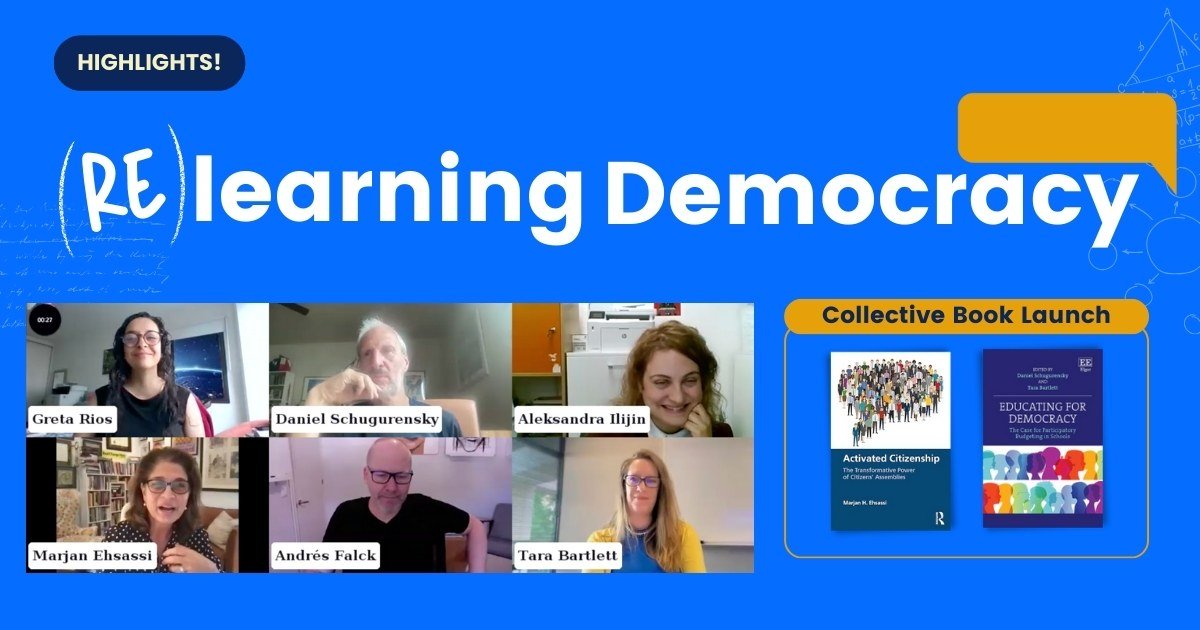Two new books show how we can help people become more active citizens
/How do we surpass the old notion that democracy equals elections and that elections are a sufficient way of making people’s voices heard? At People Powered, we are working with a network of activists, researchers, practitioners, and local officials to ensure that there are different ways to answer these questions.
People Powered members recently released two books that offer innovative ways to help people become more active democratic citizens:
Educating for Democracy, edited by Daniel Schugurensky and Tara Bartlett, provides a detailed examination of school participatory budgeting (SPB), a process that combines school democracy, civic engagement, and citizenship education. Presenting insights from SPB processes across the globe, it advocates for the wider rollout of programs that amplify students’ voices, their deliberative capacities and decision-making power while improving school climate and campus infrastructure.
Activated Citizenship, by Marjan Ehsassi, examines how citizens’ assemblies are meaningfully engaging citizens to address some of the deficits of Western representative democracies. Based on empirical evidence, the book explores the ways in which government-led citizens’ assemblies can promote a more Activated Citizen. Activated Citizenship urges the deliberative community to be more discerning and intentional to more positively impact participants’ knowledge, sense of community, enthusiasm, political engagement, as well as their sense of meaningful voice.
We had a conversation with Marjan Ehsassi, Daniel Schugurensky, Tara Bartlett, Andrés Falck and Aleksandra Ilijin, in which we shared some ideas around active citizenship and participatory democracy. It was a panel discussion and also a book launch as we grounded our discussions around the two incisive publications authored by our speakers.
In particular, we discussed the importance of citizens’ assemblies in transforming the way people think about democracy and the levels of engagement that participants show after having experienced an assembly. We then examined the power of bringing participatory budgeting processes to the academic environment and how school participatory budgeting around the world has led to exciting transformations not only within schools but also in communities.
This also happens when municipal participatory budgeting processes are brought into schools and students take a protagonist role in shaping them. The importance of making space for youth participation and inclusion in these exercises was also made evident by the panelists.
The power of participatory democracy tools to raise citizens’ awareness of issues that are important to them; of increasing levels of literacy around democratic processes, budgetary matters and participation; and of creating community cohesion are once again demonstrated throughout the work of practitioners and researchers.
It is clear that we need to keep on working on these efforts to expand democracy so that we can assure that more people can participate, along with their governments, in taking the decisions that affect their lives.
Are you interested to learn more? Watch the event recording in English below and the interpretations in Spanish, French, and Portuguese:
If you want advice on implementing citizens’ assemblies, school participatory budgeting, or other participatory processes, apply for our Rising Stars mentorship program.












